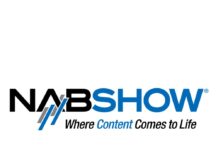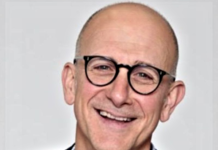
(By Roy Williams) We live in a universe of paired opposites. Proton and electron. Inhale and exhale. Extend and contract. Rise and fall. Male and female. Day and night.
What you embrace does not define you nearly so much as what you exclude.
I’m speaking of self-definition.
Example: One person says they love cars made by Ford. Another person says they love Ford “because it is the oldest American brand; I refuse to drive anything foreign.” Which of these persons gave us more insight into who they are?
In a radio ad, a description of what the purchase price includes “at no extra charge” is made more credible by describing what is not included.
I’m speaking of products and services.
Example: One air-conditioning company says its “A/C Tune-Up” includes cleaning the coils. Their competitor adds, “and we clean the coils the right way, not the easy way.” Which of these companies gave you more confidence?
Any promise of benefit a customer will gain from a product or service is sharpened and accelerated by contrasting that benefit with what it is not.
I’m speaking of advertising and marketing. I’m talking about better radio ads.
Example: The executive team of Jigsaw Health recently spent three days in private classes at Wizard Academy. When they explained to us that their magnesium
supplement would make a person feel calm and relaxed while it simultaneously boosted their energy, I said, “That sounds like ad-speak. Your ads will be more believable when you describe what the product is not, and what its benefits are not.”
These people understood. These people got to work.
They wrote, “Our cravings for artificial stimulants and relaxants increase when we don’t get enough magnesium.” “Magnesium is a mineral, not a vitamin. And it has been stripped out of the foods we eat.” And, “Magnesium delivers optimistic energy, not caffeine energy,” and, “It makes you feel yoga-relaxed, not alcohol-relaxed.”
This goes deeper than just creating better radio ads. Have you ever noticed how every mission statement sounds like every other? This is because we all believe in the same things — fairness, honesty, integrity, and treating people right. This is why mission statements sound like ad-speak. And as they progress, they begin to double-dip into the values they’ve already named, “We desire only to make a fair and honest profit,” and, “We believe in treating our employees right,” blah, blah, blah. It’s always the same predictable ad-speak.
You won’t differentiate yourself by explaining what you believe in, or what you include. Differentiation is razor-sharpened and rocket-accelerated by explaining what you don’t believe in, and what you leave out.
Example: One company says, “We believe in data-driven solutions!” Its competitor says, “We give you step-by- step solutions, not data without interpretations.” Which of those statements is more believable?
Most people hesitate to define themselves by what they reject, for fear of being perceived as negative. But is it negative to say, “The right way, not the easy way”? Is it negative to say, “a mineral, not a vitamin”? “Optimistic energy, not caffeine energy”? “Yoga-relaxed, not alcohol-relaxed”? And when you say, “step-by-step solutions, not data without interpretations,” you’re excluding an idea, not a person.
Help your clients figure out what they are not. It won’t change who they are, but it will definitely change how your audience sees them.
Roy H. Williams is president of Wizard of Ads Inc.





